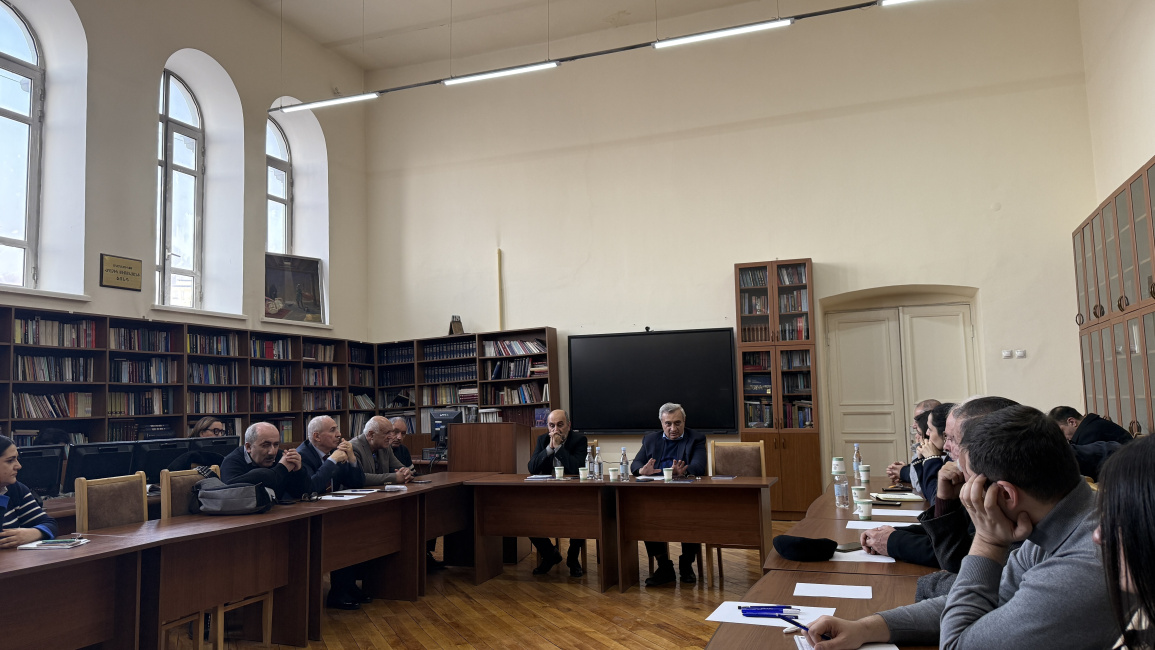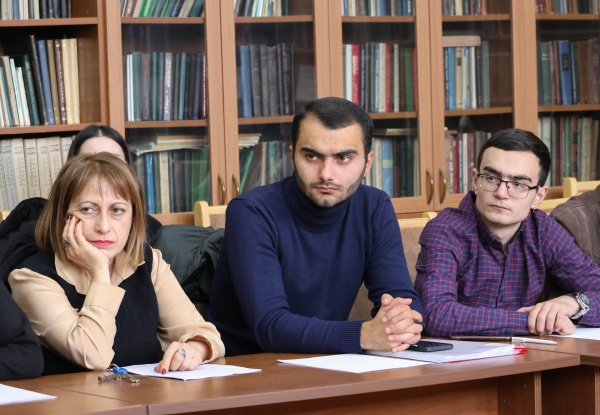YSU Faculty of History recently hosted a workshop focused on the main issues in Armenian studies and historical education. The discussions covered solutions, development strategies, and the challenges facing the field.
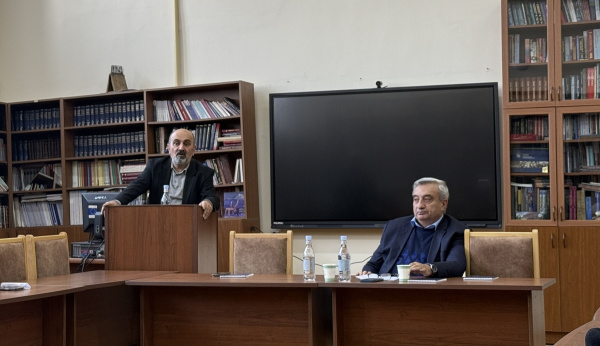
The Dean of the History Faculty, PhD, Associate Professor Mkhitar Gabrielyan, speaking about the existing issues, mentioned that the integration of academic research conducted outside the university environment into the educational process remains an ongoing challenge. He emphasized the importance of discussing this matter further to identify the most effective ways to improve. Additionally, he stressed the need to prioritize understanding the expectations of academic partners, as well as the expectations that partner institutions have of the university.
The workshop started with a report titled "Issues of Integrating Academic Research Findings into the Educational Environment," delivered by Ashot Melkonyan, the Director of the Institute of History at the NAS RA, Academician at the NAS RA, Doctor of Historical Sciences, Professor.
The academician presented the peculiarities of knowledge formation in the academic environment, illustrating with various examples how this knowledge becomes integrated into the educational setting. Addressing the relationship between the academic and educational environments, A. Melkonyan noted that, historically, knowledge has primarily been developed within academic circles. However, he pointed out a current challenge: the need to connect scientific research with university education and to make it more research-based.
As part of the workshop, a discussion titled "Integration of Studies on Armenia-Georgia-Iran Relations into Educational Processes" was held. The aim of the discussion was to explore the challenges of continuously organizing research and integrating its findings into educational programs, particularly in light of new geopolitical realities.
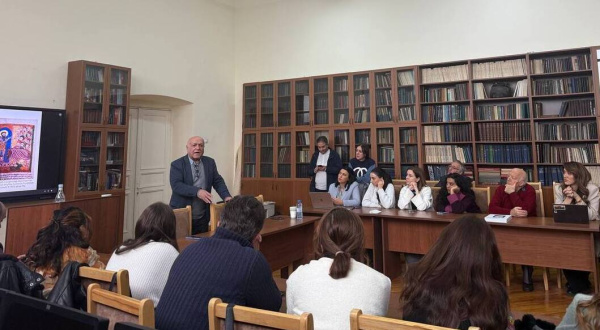
During the workshop, the preservation issues of Armenian cultural heritage were also discussed. The Head of the Chair of Culturology, Doctor of Historical Sciences, Professor H. Petrosyan delivered a report titled "The Preservation of Artsakh’s Cultural Heritage and the Challenges Faced by the Academic Community." In his presentation, H. Petrosyan addressed the current issues in the preservation of Artsakh's cultural heritage, emphasizing the role of the academic community in studying, documenting, and preserving this heritage.
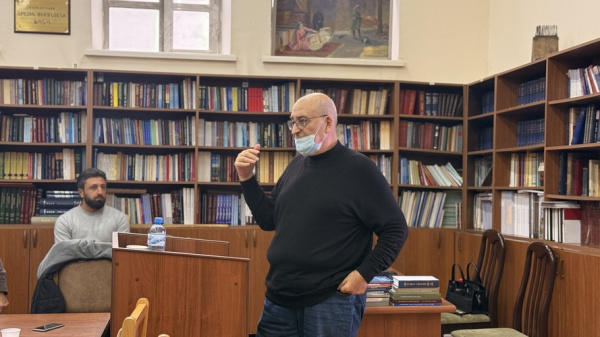
At the workshop, the Scientific Director of the Institute of Archaeology and Ethnography at the NAS RA, Corresponding Member of the NAS RA, Doctor of Historical Sciences, Professor Pavel Avetisyan presented a report titled "Results of the Latest Archaeological Research and Key Issues in Armenian Ancient History". In his presentation, Prof. Avetisyan discussed the significant findings from recent archaeological studies, which have illuminated many aspects of Armenia’s ancient history. The discussion also highlighted the importance of integrating these archaeological results into the educational environment to equip future specialists with new knowledge and skills.
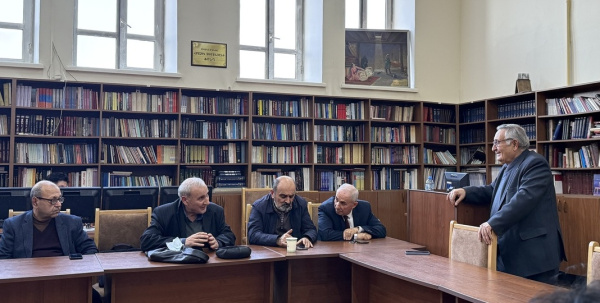
On the final day of the workshop, one of the key theoretical and methodological topics in the study of modern Armenian history was discussed. The Head of the Chair of Armenian History, Doctor of Historical Sciences, Professor Edik Minasyan presented a report titled "Issues of Periodization in Modern Armenian History." In his presentation, Prof. Minasyan addressed the challenges of periodizing modern history, highlighting the unique characteristics of historical processes and presenting new approaches to their evaluation. He emphasized that the periodization of history should be based not only on political, but also on economic, cultural, and social factors, offering a more complete and comprehensive understanding of the past.
The discussions provided participants with an opportunity to share their views and suggestions, contributing to the search for common ground between academic and educational environments.
The outcomes of these discussions will be summarized and later serve as a tool for organizing the educational process more effectively.
